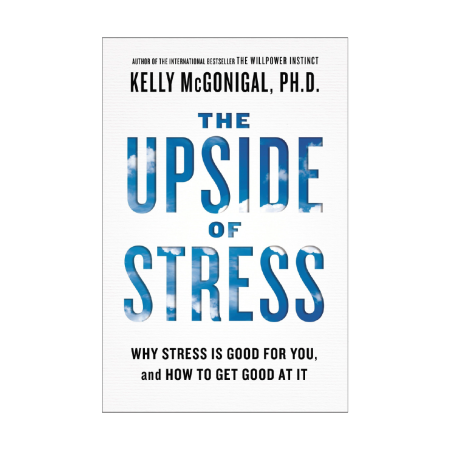Romans 12 is one of the most important chapters in the Bible. It starts like this:
“Do not conform to the pattern of this world, but be transformed by the renewing of your mind. Then you will be able to test and approve what God’s will is—his good, pleasing, and perfect will.” (Romans 12:2)
This is a goal we all have for ourselves: we want to transform the way we think. We want to stop worrying. Most people want more confidence. We want to get rid of bad habits. We have old recordings in our minds of negative thoughts placed there by an ex-boyfriend, a bad coach, or a discouraging teacher.
There isn’t a person reading this who doesn’t want to transform their mind.
In the middle section of this chapter, Paul gives two contradictory statements: “Be joyful in hope, patient in affliction.” (Romans 12:12) At first glance, these appear to be seemingly random misfit thoughts. Many people think that to live in joy means the absence of affliction. However, I’ve come to realize that the two are permanently intertwined and hold a key to significant mind transformation.
David Brooks put it like this:
“You might think a bright personality would come from an unburdened life—a life of pleasures and constant delights. But if you closely look at joyful people, you notice that very often, the people who have the most incandescent souls have taken on the heaviest burdens.” (David Brooks, The Second Mountain)
Have you noticed the truth of this quote in your life? Over and over, I have seen that the most joyful people are the ones who have taken on the most difficult burdens.
My friend Katie is a perfect example. Several years back, she walked alongside a friend who was traveling down the difficult path of infertility. This friend became pregnant but lost the baby at 22 weeks. The next time she got pregnant, her organs began to shut down at 23 weeks. She was told to stop trying; it could kill her. Katie heard this and agreed to be her surrogate. Having had several children herself, Katie did not enter this commitment blindly; she was aware of the morning sickness, the back pain, and the incredible pain of childbirth. But she did it anyway, with no expectation of anything other than helping her friend realize a lifelong dream. The result was a beautiful baby and blessed parents. Two years later, Katie carried a second child for the couple.
Let me tell you something about Katie: you have never seen a person beam with more joy than my friend. She is a constant source of encouragement, love, and laughter.
Benjamin Hardy, a writer, described his decision to take on three foster children in Inc. magazine: “Before having that personal load to carry, I was somewhat complacent. I lacked the urgency. I didn’t have the traction to move forward. A life of ease is not the pathway to growth and happiness. On the contrary, a life of ease is how you get stuck and confused in life.”
“Taking on those kids meant knowing more about frustration, anxiety, and fatigue, but also elation, sweetness, and especially caring love. Permanent joy seems to emerge when desire is turned outward for others.” Benjamin Hardy
Let me give you a reading recommendation. This book has had the most profound impact on my life in the last five years, outside of the Bible. It’s called The Upside of Stress: Why Stress Is Good for You, and How to Get Good at It, Kelly McGonigal.

We have heard for years that stress is a killer, but research shows that it’s not the stress in our lives that has the biggest impact; it’s our attitude about stress.
If we think stress is a killer, it will be. If we see stress as a challenge to overcome and realize it will build our character, stress has little or no effect on us. The key is to find the good in it—the joy in affliction. Buy the book. Better yet get the audio book read by the author herself. To get a sneak peak, take a moment to watch the Kelly’s TED Talk, which, at the time of my writing, has over 15 million views.
Here’s my favorite quote from that book:
“A meaningful life is a stressful life.” Kelly McGonigal
The values in our life that cause the most stress also provide the most meaning. Think about that for a second.
Children make that list. My kids have been a major source of stress for the last 31 years of my life. When they were little, the stress was high because I had to stay ever vigilant to keep them from hurting themselves. I had to keep them leaping off ledges, bolting out into the traffic, and shoving forks into electrical sockets.
Now my kids are older, and it hasn’t gotten easier. My friend Denny Belesi once gave me this wisdom that I will never forget:
“When your kids get older, it’s not easier; the stakes just get higher.” (Denny Belesi)
Kids stress me out. They have also been at the center of the greatest moments of my life.
I traveled to Haiti with these children and watched them roll around on the ground with orphaned children who longed for that kind of connection.
During one of those trips, we met and fell in love with a little girl from Haiti whom we adopted into our own family. I have seen that child raise thousands of dollars to send back to her family in Haiti so they could have food, find jobs, and secure shelter.
I have had a front-row seat to see them star in musical theater, win CIF championships, lead worship, and travel the world on mission trips. Now, I get the privilege of watching my oldest daughter raise her own daughter like a boss.
My kids cause me all kinds of stress. They come to me with their car accidents, bad decisions, and broken hearts. I could have avoided all of that by not having them. But I would have missed out on wedding days, grandkids, and belly laughs.
A meaningful life is a stressful life.
Take a moment to do a little stress inventory. What is it in your life that causes you the most stress?
Now consider what meaning that stress brings to your life.
Marriage is stressful, but if we lean in, it provides romance, connection, and opportunities for growth and companionship.
Work is stressful, but if you invite God into it, you can find amazing opportunities for growth and purpose. Your anxiety will drive you to set goals and achieve them, pour courage into your co-workers, and provide for the family you love.
This past year, I made one of the biggest transitions of my life. I left the church my wife and I founded and loved to move to Arizona to be near our daughters and granddaughter. I would love to tell you that the transition was seamless and that I felt amazing peace during the whole process.
Nothing could be further from the truth.
I second-guessed myself, stressed about money, and felt job panic as I looked for my next calling. My anxiety level was elevated, my sleep patterns disturbed, and I wondered where God was.
I was under all manner of stress. But out of that stress has come incredible moments of meaning. Let me share just one of them.
My youngest is finishing up her last year at Grand Canyon University, and before she graduates with a degree in social work, she needs to complete 400 volunteer hours. She landed an internship at the Glendale Police Department in their social work division. She is there for eight hours with an hour lunch break, and at least once a week, she has agreed to spend that lunch with her Papa (as long as I buy her a white chocolate mocha with oat milk).
For one hour each week, I sit back and hear all about her life. We talk about boys, work, school struggles, future plans, and boys. Honestly, it doesn’t matter what we talk about. Spending an hour talking and laughing with my beautiful and talented daughter is priceless. It is worth all the stress I’ve endured this past year. Those moments pull me out of my patterns of self-preoccupation and focus me on what really matters. I love this quote from Helen Keller:
“There is joy in self-forgetfulness. So I try to make the light in others’ eyes my sun, the music in others’ ears my symphony, the smile on others’ lips my happiness.” (Helen Keller)
A meaningful life is a stressful life. Let’s learn to lean in, to be joyful in hope, patient in affliction.









Leave A Comment